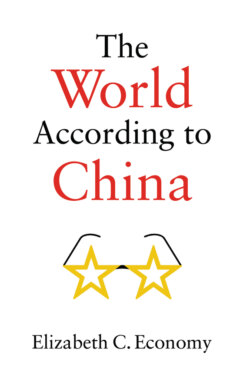Читать книгу The World According to China - Elizabeth C. Economy - Страница 14
A Friend in Need Is a Friend Indeed
ОглавлениеOver the course of the pandemic, the WHO emerged as a critical ally for Beijing. The head of the WHO, Tedros Adhanom Ghebreyesus, whose candidacy Beijing had championed, consistently downplayed the potential threat of the virus and any Chinese responsibility for its spread. Even after the WHO formally declared the COVID-19 outbreak a Public Health Emergency of International Concern, Tedros stated that the designation “was not issued because of what is happening in China, but what is happening in other countries.” Moreover, in a January 30 news conference, he reiterated his opposition to limiting either trade or travel to China, despite the fact that there were 17,238 confirmed cases and 361 deaths in China as well as 151 confirmed cases and one death in 23 other countries.60 During a brief trip to China the week before, Tedros had even lauded Beijing’s actions: “We appreciate the seriousness with which China is taking this outbreak, especially the commitment from top leadership, and the transparency they have demonstrated, including sharing data and [the] genetic sequence of the virus.”61
The WHO had earlier deferred to China’s wishes on naming the disease.62 The organization acknowledged privately that China did not like the name – SARS-CoV-2 – selected by the official study group of the International Committee on Taxonomy of Viruses (likely because it reminded the world of China’s role in the 2003 SARS outbreak).63 More significantly, the WHO also respected Beijing’s wishes by refusing to allow Taiwan to participate in WHA briefings unless it adopted Beijing’s preferred name for it: Chinese Taipei.
China’s influence in the WHO, perhaps surprisingly, is not the result of a substantial financial contribution to the organization; the country contributes less than 1 percent of the organization’s budget. It is, however, deeply integrated into the WHO politically: a Chinese official holds a seat on the governing board and a second is in charge of overseeing the organization’s work on communicable and noncommunicable diseases. China is also viewed as a very important partner in developing public health programs for the Global South.64 And Tedros has been an outspoken supporter of Chinese initiatives. Speaking at the August 2017 “High-Level Meeting for Health Cooperation: Towards a Health Silk Road” in Beijing, he applauded the HSR as the “groundwork for essential health services needed to ensure universal health care.”65
The WHO’s unreserved support for Beijing throughout the pandemic raised alarm bells in other countries over undue Chinese influence. According to one public health expert, Tedros avoided criticizing China for fear of losing access to critical information. Other WHO staffers, however, were less reticent. Australian professor John Mackenzie asserted that China had tried to hide cases during the first weeks of the outbreak.66 He leaked recordings of internal WHO staff meetings that revealed consensus among many staffers that China was not sharing information in a timely manner. In particular, Beijing only released the gene sequence after a lab in Shanghai had already published it on a virologist website. (It later emerged that one Chinese lab had sequenced most of the genome as early as December 27, a full two weeks before it was released to the public.) In addition, the WHO’s chief of emergencies, who had praised China publicly, claimed in an internal meeting that China was not cooperating the way other countries – such as the Democratic Republic of the Congo – did during the Ebola outbreak.67
